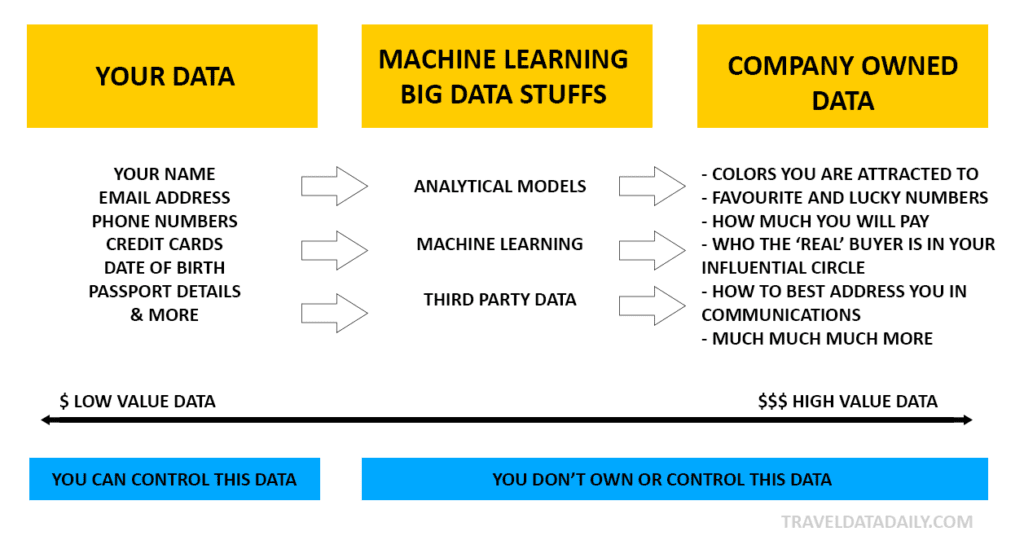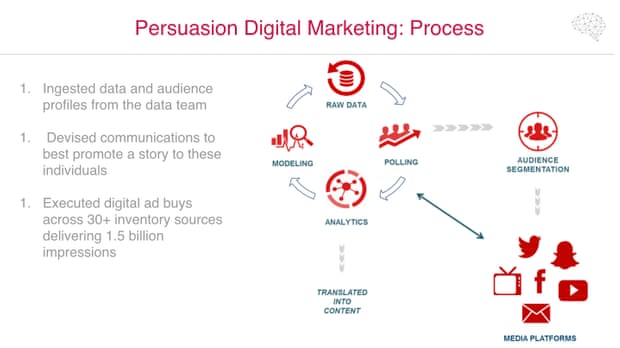The past few years have seen a wave of travel companies member accounts compromised which have rocked the industry.
Cathay Pacific had 9.4M accounts compromised.
British Airways had 380,000 card payments breached.
Raddison hotels had up to 10% loyalty program accounts compromised.
Hyatt twice had malware embedded into payment systems that had a bunch of data compromised.
IHG had s string of hotels data compromised between 2016-2017
Marriot beat them all with 500M loyalty accounts compromised in a recent data breach.
While the worrying trend of personal data being accessible to hackers, unsavoury characters and the dark web continues to grow; there is potentially a much larger, scarier secret these companies are not disclosing to the public in the wake of the data leaks.
Has personally identifiable behavioural or consumer insights data been exposed?
What’s the big deal?
You may have heard the phrase data is the new oil, which implies that what businesses can extract from personal data is so rich and of high value that it’s what underpins the commercial models of technology companies.
Consumers are lead to believe that it’s their data which businesses are monetising, selling it off to advertisers, emailing you personalised offers, and displaying relevant advertisements. That is not entirely true.
Personal consumer data such as your name, email address, phone number etc. are details which you as an individual, own. The privacy protections around GDPR and other global privacy laws are in place to restrict how companies collect, store and share your personally identifiable information with third parties. The concept is to give you greater perceived control over what happens with your information. That is true.
If businesses are not selling access to your personal information to external parties, and yet data is touted as ‘the new oil’, then how the heck are big organisations generating revenue from data?
The real value of data and how it’s used to make you buy more products.
Data that you input into a website or app that is created by you is your data. That may include your name, email address, gender, date of birth, credit card numbers and so on. Let’s call the data ‘personal ownership’.
Traditional advertising and CRM targeting focus on basics such as – “let’s show advertisement X to all males between 24 and 30 years of age who live in Los Angeles”. Advertising in this way works – but it’s nothing compared to where the real money is in the business.
Next, we have dark data, which is the hidden, and often utilized data which can be how many failed logins a user has on a website, the number of times a user visits a site on any given day, what types of airline tickets they are searching for, what web browser or mobile phone they use, etc.
However, the real cash is in behavioural data. That is – knowing WHY a consumer clicks on a link or transacts with a brand. What was the intent, or the primary driving factor behind the engagement?
Consumers do not own their behavioural insights. These insights are derived from data science teams at the organisations who have invested time creating machine learning models to identify traits, trends and use success metrics to better predict future intent behaviour on similar consumers.
Now armed with the behavioural data, companies can hyper-personalised the content you see, the marketing emails you receive, and the prices displayed. In this sense, companies can provide the right incentive to the right person at the right time. The ‘How Big Data is Changing the way we fly‘ explains how some airlines are feeding in behavioural data into their internet booking engines.

Your personal information, while interesting – is not that important. It’s an identifier of sorts and tells us who you are. As more is learned about who you are, what you click on, what you do and don’t interact with – you are segmented into multiple bucks of user behavioural types. Typically, organisations at this level of data analytics will not provide consumers with any algorithmic transparency.
Why is behavioural data valuable?
If a business knows what your primary drivers are in given situations, it’s possible to exploit your motivations and leverage them to drive a particular agenda.
In the 2015 movie ‘Focus’ starring Will Smith, his character is a clued-up con man who lives and dies by the game. Smith’s character in it for the long haul and keeps his eye on the ultimate long-term goal throughout the entire movie.
[Spoiler Alert] – The long-con involves a big-time gambler who has his day seeded with the ‘lucky’ number 55. Smith’s team position themselves in key areas of the gamblers life holding signs and objects with the number ‘55’ subtly placed everywhere. The number is plastered EVERYWHERE in the gamblers life before the final scenes. The branding for the number 55 is therefore implanted into the gamblers head in the leadup to the big event, and when it comes time to pick a number – guess which number he bets on?
In the 2016 US Federal elections, Cambridge Analytica came under scrutiny for assisting political campaigns by using Facebook behavioural data to drive users to specifically designed landing pages that would appeal to them.
One Facebook member may see “Trump supports the right to arms”, and another user may see “Trump to enforce stricter gun controls”. The entire concept was to garner support for Trump – but the messaging is delivered on an individual basis specifically to what motivates that person to click, engage or share.
Knowing what type (or segment) of user clicked on each link type let Cambridge Analytica know what important interests and motivations each Facebook user have, what made them click, share and like certain pages – even those not politically inclined.

Photograph: Cambridge Analytica
As you can see – the power of knowing behavioural influence data is supremely powerful. Many companies are training their models to be able to identify specific ‘look-a-like’ behavioural patterns, and this leads to a greater risk of your personally identifiable actionable insights (aka: all about you), being exposed when company data is leaked or compromised.
These companies don’t need to disclose if insights data is compromised in the same way they do if your personal information has been compromised. If leaks are disclosed to the public, the company also does not need to disclose what anonymization or transparency (if any) was involved in the modelling process.
Basic behavioural insights include:
– Which marketing channels a type of user is most likely to purchase via
– Which complimentary ancillary/upsells a user is most likely to purchase using propensity modelling
– Your favourite drink or meal on a flight
Advanced behavioural insights include:
– How to address a user in communication (Hello Name, Dear Name, etc..)
– Whether to target marketing communication directed to that user, or to the key person of influence in their buying circle (ie: target emails to the wife who may have ultimate influence over the husband who is seen as the frequent flyer)
– Your lucky numbers or other numbers which you have a strong affinity toward
KNOWING HOW TO MAKE A CONSUMER BUY YOUR PRODUCT, BY USING THE WHY A CONSUMER WILL BUY YOUR PRODUCT IS THE HOLY GRAIL OF MARKETING.
Getting to the HOW and WHY can be achieved after analysing key insights, which is extracted from, or the Dark Data are hidden within standard data sets, third party data, and consistent machine learning over time which looks for patterns in similar user types.
Should consumers be concerned their data has been exposed? Absolutely.
However, to understand the actual extent of the data breaches has on consumers, we need to know the full extent of every piece of data which was compromised.
Hotels and airlines ARE using your personal data to change your behaviour and drive specific transactional and non-transactional outcomes. While it can be a positive experience with highly personalised deals – it’s important to keep in mind that – you don’t own that data.

